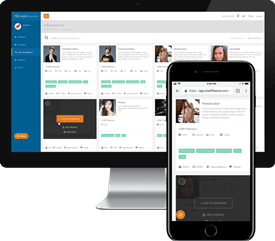Last Updated on June 8, 2020
There’s a lot of chatter on social media, but that doesn’t mean a lot is being said. While many people seek out valuable insights and in-depth discussions, plenty of people and brands are shamelessly spreading spam, using buzzwords they don’t understand, and generally trolling others on the web.
The clutter surrounding certain terms has made some people question whether they should include social media buzzwords in their communication strategy. Let’s review a few pros or cons for using buzzwords to boost your social media engagement.
Pro: You Can Connect With More Advanced Audiences
One of the main reasons brands use social media buzzwords is to connect with specific audiences. For example, if a marketing blog explains what CPA (cost-per-acquisition) is every time it is mentioned in their content, then the writers don’t have as much space to explain why mentioning a target CPA is relevant to the information.
Buzzwords separate the wheat from the chaff. Instead of catering to everyone in their field at all levels, social media managers can reach the more advanced, high-level target audiences they really want to sell to. The use of jargon is essential to establish your brand’s authority and reach the right people to turn into leads.
Con: You Isolate Less-Informed Audiences
While jargon lets you reach more advanced audiences, you risk driving away people who aren’t familiar with the concepts or think they are too advanced. Many B2B agencies and contractors target audiences who aren’t familiar with marketing concepts to offer their services as a solution. The average business owner doesn’t have to be an expert in X when company Y can do it for them.
Deciding whether to include buzzwords means looking at your target audience. What is their level of knowledge? What concepts will they recognize? Some buzzwords could end up alienating rather than attracting your desired audience.
Pro: It Is Easier to Find Audiences Talking About Your Themes
The main goal of social media marketers is to filter out irrelevant audiences and leads to find the most knowledgeable people. Social media buzzwords help with this. By searching for specific terms and using these words and phrases in content, marketers can carve out niches for themselves and find the exact people they’re hoping to reach.
Instead of trying to reach everyone in hopes of finding your audience by chance, social media buzzwords help you target the people who are most likely to become customers of your business with more precision.
Con: Your Content Can Start to Sound Dated
If you work in an industry that is constantly changing and evolving, buzzword-heavy content could begin to sound dated once everyone else has moved on to new terms and concepts. For example, the term “native advertising” peaked in 2014. You can see in the Google Trends map that fewer people are using it than before. Meanwhile, the term “influencer marketing” has taken off. While those are two different concepts, audiences have shown they are more interested in influencer marketing services. If you’re still talking about native advertising, your content looks outdated, and audiences will think you’re falling behind.
Pro: You Can Target Specific Interests
Buzzwords will affect both your organic and paid social media efforts. Brands who are investing in paid promotions on social media can use buzzwords to target specific interests. They can narrow their audiences dramatically with just a few clicks.
In some cases, the social media content you create for your ads relies on buzzwords. If you are targeting specific terms, you want to use the buzzwords to catch the eyes of social media users and draw them into your relevant content.
However, you will want to be careful with the buzzwords you use. Adding three dozen hashtags, for example, can be off-putting for some and can dilute your message. Instead, focus on creating a strong message with a direct target that draws people in.
Con: Buzzwords Turn Some People Off
The vast majority of people use jargon in their day-to-day lives, but that doesn’t mean that they like it or understand what it means. According to a survey by American Express OPEN, 64 percent of workers use jargon daily in the workplace, but 80 percent only pretend they know what it means. This jargon includes everything from complex business concepts to vague metaphors like “driving the bus” or “finding low-hanging fruit.”
People who pretend to understand buzzwords in the office aren’t going to pretend on social media. If they see these same terms online, they’re going to tune out the message or bounce. By focusing on the meat of your message rather than trying to pack it full of keywords, you have a better chance of sparking a real discussion with people online.
Each social media manager has to make their own decisions regarding marketing buzzwords. Try using a few terms in your content to see how customers respond. You may have better engagement than you have seen before, or you may send audiences running. Either way, you’ll have learned more about what your target audience prefers, which can help you tailor your content more effectively in the future.

SallyBot is committed to helping users get the most out of Intellifluence. By helping brands create campaigns, providing unparalleled customer service and offering useful advice, nothing makes SallyBot happier than hearing she is liked… Really, really liked.






